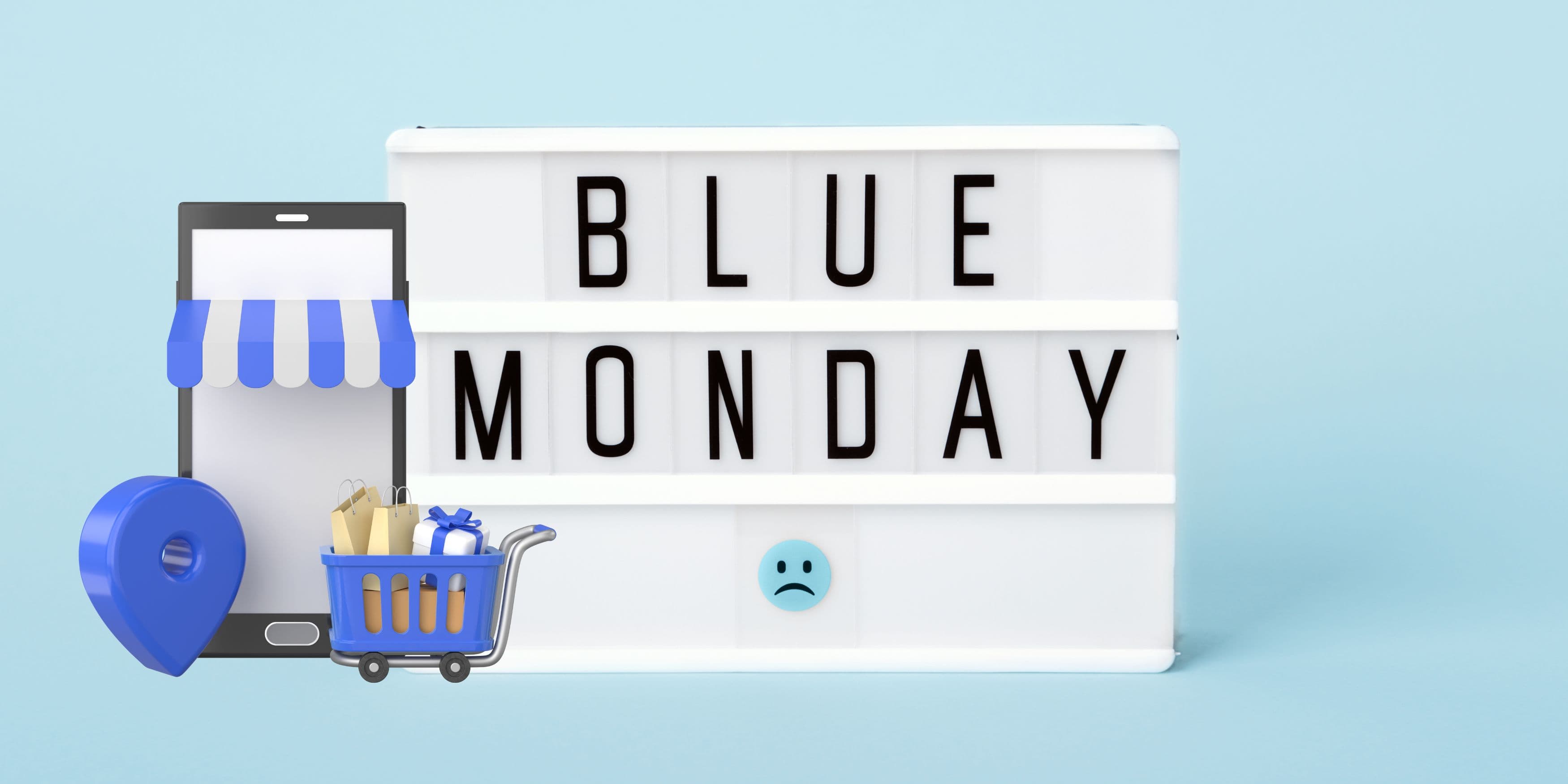Lipstick beats bag: how beauty is conquering online luxury

Discover how the saddest day of the year influences the way we choose to shop online.

Who hasn’t felt the weight of routine after the frantic pace of the Christmas holidays? That sense of melancholy that envelops us in January, when the days grow shorter and the grey winter weather seems to amplify every little worry. It’s within this context that the concept of Blue Monday was born, often referred to as "the saddest day of the year."
But what lies behind this definition?
The term Blue Monday comes from English and literally means "blue Monday." In Anglo-Saxon culture, the colour blue has long been associated with sadness and melancholy, much like black conveys similar emotions in many other cultures. Behind Blue Monday lies a mix of factors that contribute to creating a particularly challenging emotional climate: the end of the festive season, the return to work, the cold and grey weather, and the financial strain from holiday expenses. These elements, when combined, can lead to feelings of fatigue, apathy, and melancholy.
An intriguing study commissioned by Manhattan Associates and conducted by OnePoll has revealed a curious aspect of Blue Monday: the use of online shopping as a potential antidote to sadness. According to the research, a significant 37% of European respondents admitted that making an online purchase could help improve their mood on this particular day. This trend is especially pronounced among Millennials and Gen Z, generations that have turned online shopping into a regular habit.
But it’s not just the act of purchasing that influences well-being: for 54% of Italian respondents, the availability of discounts and promotions also plays a crucial role in making Blue Monday a little less gloomy.
These findings highlight how the desire for instant gratification and the search for advantageous deals are psychological mechanisms that can be triggered during moments of heightened vulnerability, such as those associated with Blue Monday.

Online shopping has become an integral part of daily life, influenced by various psychological factors. But on Blue Monday, which purchases bring the most satisfaction to Italians?
55% - Fashion
52% - Electronics
36% - Personal care products
It’s also interesting to note that women tend to prefer clothing and beauty (75%), while men focus more on electronics (68%). Gen Z, on the other hand, continues to prove itself as a trendsetter, with a primary focus on fashion (67%).
These findings provide an intriguing snapshot of the desires and expectations of Italian consumers and serve as a valuable guide for retailers looking to make the most of the opportunities presented by this particular time of year.
The online shopping experience of Italians is strongly influenced by the type of platform chosen. Marketplaces, with their wide range of products and brands, offer an experience more akin to a large virtual storefront, satisfying 61% of shoppers, with a slight preference among men (64%) and a more balanced distribution across generations: 61% of Millennials and 45% of Gen Z.
While it’s true that when it comes to online shopping, Italians show a preference for traditional devices like laptops and desktop computers, it’s equally true that smartphones are becoming an increasingly popular shopping tool, especially among the younger generation. In fact, 51% of Gen Z and 48% of Millennials use their smartphones for shopping. This percentage is expected to grow further in the coming years, confirming that new generations are digital natives, accustomed to managing much of their lives through portable devices.

The research highlights that our purchases are not just transactions, but real experiences that touch our emotions. Companies, on the other hand, now have the opportunity and responsibility to make these moments even more special.
However, we must remember that taking care of our mental health is a duty to ourselves, and shopping, while enjoyable, should never replace more constructive activities and meaningful relationships.